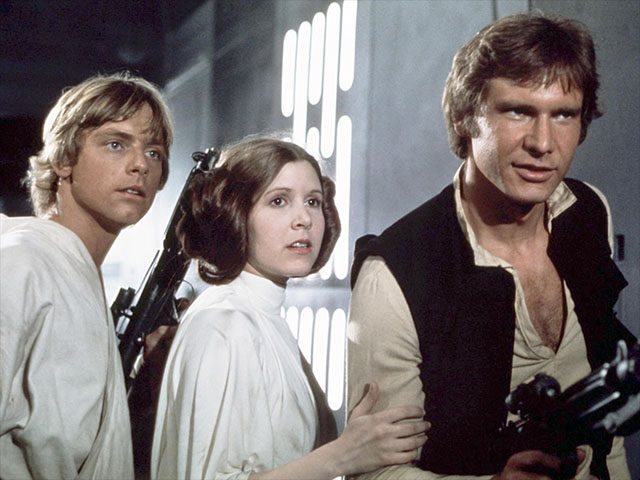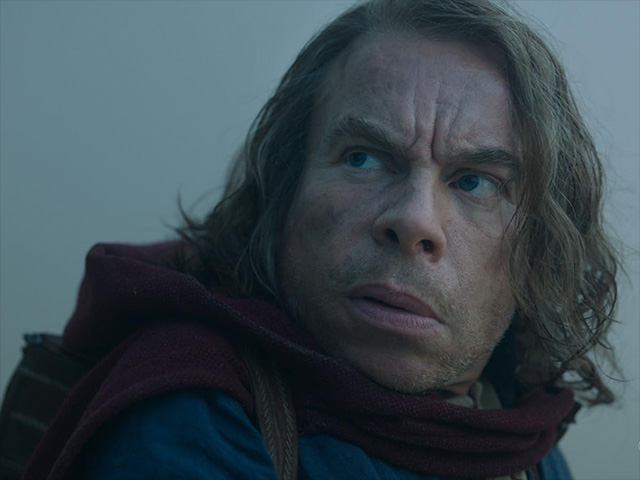Last month, the Disney Grooming Syndicate told stockholders the company has “generated a 2.9 times return on the purchase of Lucasfilm.” According to Forbes, that’s a big, fat lie.
The idea behind releasing that lie was to prop up Disney CEO Bob Iger, who was facing a stockholder rebellion he eventually won, thanks to lies like this one:
[B]uried in the fine print is the revelation that the purchase price of Lucasfilm isn’t even included in the R[eturn] O[n] I[nvestment] calculation. Instead, it is purely based on the box office performance of Disney’s Star Wars trilogy, its two spinoff movies, merchandise, DVD and Blu Ray sales.
As revealed, the methodology is questionable as Disney based the ROI on the revenue generated by the movies, merchandise, DVDs and Blu Rays rather than the profit they made as it should have done. Using the revenue rather than the profit artificially inflates the result as it doesn’t factor in the costs that Disney had to pay out.

Disney chief executive Bob Iger on February 12, 2024, in Beverly Hills, California. (Jordan Strauss/Invision/AP)
Back in 2012, Disney purchased everything attached to Lucasfilm — Star Wars, Willow, Indiana Jones — for $4.05 billion. Twelve years later… Well, let’s take a look at the lay of the land…
After three abysmal sequels, as a film franchise, Star Wars is doornail dead. We were told Disney intended to take the most beloved brand in movie history and Marvel it — meaning, two Star Wars movies a year, baby! That legendary Star Wars universe would be explored up, down, and sideways. Get ready for adventures galore, Star Wars fans! The result? Not a single Star Wars feature since the abysmal Return of Skywalker in 2019. Over and over, we’ve been told a half-dozen Star Wars movies are on the way, only to see them canceled or forgotten.
Man alive, even those terrible prequels couldn’t kill Star Wars. But Bob and Lucasfilm chief Kathleen Kennedy found a way: Feminize, politicize, scold, lecture, demean, and emasculate classic heroes, take all the fun and joy out of it, message over story… No sex, no glamour, and affirmative action thy name is Rose Tico.
Disney decided to further debase this great franchise with a half-dozen or so super-expensive Disney+ streaming shows that garnered lower and lower ratings as Disney+ lost billions of dollars and millions of subscribers.
The Disney+ Willow streaming series cost a reported $100 million and turned a beloved children’s fairytale into The Boys in the Band. The backlash that followed killed any chance of a second season, and the show was eventually pulled entirely from the streaming service.
Which brings me to Indiana Jones…
Indiana Jones is such a beloved character that even the appallingly awful Indiana Jones and the Kingdom of the Crystal Boy This Movie Sucks made a fortune. For all of its flaws (and they were legion), Crystal Skull didn’t have Jones emasculated by a sexless, unattractive harpy, which is exactly what last year’s Dial of Destiny did—which resulted in a $134 million loss.
But-but-but, says Disney, the jokes on the haters because we’ve already made 2.9 times what we paid for Lucasfilm.
Is it any surprise that the same people looking to queer your kids and then feed them into the mutilation maw of the trans cult would lie about such a thing?
Because Hollywood cannot hide financial truths from the United Kingdom, Forbes dug up the truth about production costs and Disney’s net profit. Here’s the math:
The Force Awakens:
- Production Budget: $475.1 million
- Disney’s Share of Box Office: $1,034.7 billion
- Net Profit: $559.6 million
Rogue One:
- Production Budget: $247.8 million
- Disney’s Share of Box Office: $529.3 million
- Net Profit: $281.5 million
The Last Jedi:
- Production Budget: $319.5 million
- Disney’s Share of Box Office: $666.3 million
- Net Profit: $346.8 million
Solo:
- Production Budget: $287.2 million
- Disney’s Share of Box Office: $196.5 million
- Net Loss: -$90.7 million
The Rise of Skywalker:
- Production Budget: $448.1 million
- Disney’s Share of Box Office: $537.1 million
- Net Profit: $89 million
The production budgets above do not include rebates from the U.K. For example, Solo’s true production cost was $350.4 million, but a rebate of $63.2 million brought that budget down to $287.2 million.
Per Forbes, “The total net profits from Disney’s five Star Wars movies [is] $1.2 billion which is $2.8 billion short of the purchase price of Lucasfilm.”
Then you have to subtract the $134 million lost on Indiana Jones and Dial of Destiny, so what you’re looking at here is Disney still about $3 billion in the hole on its 12-year-old Lucasfilm purchase. That wouldn’t have been the end of the world had Disney not woke-raped those three Lucasfilm golden geese into damaged franchises that have lost their once rabid and faithful fanbase.
Also not included in those profit/loss figures are the hundreds of millions spent on promotional costs or all the money Disney has made on home video sales and merchandising:
Of course, the calculation above doesn’t include the huge profits Disney makes on the Star Wars merchandise, DVDs and Blu Rays. However, it also doesn’t include the massive marketing costs of the movies as well as the costs of the Star Wars streaming shows and theme park attractions which also don’t have revenue streams directly connected to them as visitors get access to all of the rides for the price of a single ticket.
As far as the streaming shows and theme park “profits,” as I said above, Disney+ is losing billions of dollars and millions of subscribers. As far as Star Wars attracting theme park visitors, that also appears to be a loss.
What remains incalculable, though, is the unnecessary and self-inflicted loss of public goodwill toward the Star Wars, Disney, and Indiana Jones brands.
Borrowed Time is winning five-star raves from everyday readers. You can read an excerpt here and an in-depth review here. Also available on Kindle and Audiobook.




COMMENTS
Please let us know if you're having issues with commenting.